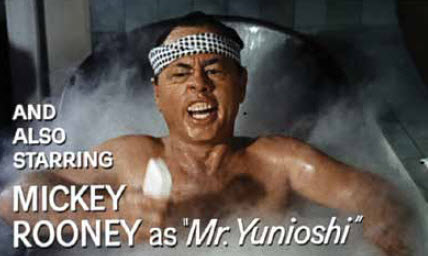Publisher’s Point: Redemptive Repentance
 By: Ali Elizabeth Turner
By: Ali Elizabeth Turner
Last week, Governor Kay Ivey did something that I can only describe as classy; she repented for something she did while in college, and it was that she participated in a skit in which she appeared in blackface. It was the Alabama of another time, and given the cultural norms of the day, Miss Kay was smack dab in the middle of behavior which was, by today’s standards, certainly unacceptable. But I seriously doubt that there was the active intent to harm anyone, even back then. She did an outstanding job of “owning it,” thus making me proud once again to be a citizen of Alabama the Beautiful. Did she mess up once long ago? To be sure. And more to the point, and what makes her statement and example inspiring, is that she “fessed up.” Her statement in part is as follows:
“As such, I fully acknowledge – with genuine remorse – my participation in a skit like that back when I was a senior in college.
“While some may attempt to excuse this as acceptable behavior for a college student during the mid-1960s, that is not who I am today, and it is not what my Administration represents all these years later.
“I offer my heartfelt apologies for the pain and embarrassment this causes, and I will do all I can – going forward – to help show the nation that the Alabama of today is a far cry from the Alabama of the 1960s. We have come a long way, for sure, but we still have a long way to go.”

Let’s look at the big picture. Blackface and minstrel performances were a common, and in retrospect, an unfortunate part of 19th and 20th century American entertainment, started by white people and made the most famous in 1927 by Al Jolson in the first talking motion picture, The Jazz Singer. Al’s original name was Asa Yoelson, was Jewish, born in Lithunia, and came to this country with his family in 1894. By contrast, Eddie Murphy donned whiteface and impersonated a Jewish man in the barber shop in the comedy, Coming to America, in 1988. Whoopi Goldberg and Ted Danson together crafted a blackface roast of her at a lunch given in NYC in her honor; he wore the black face, and she wrote the script for him which was heavy with the use of the N-word. There was pushback, certainly, but no one thought that they should be banned from the small or large screen. Godfrey Cambridge, a black comedian in the ‘60s, donned whiteface for a movie in which he portrayed a white man that was called, “Watermelon Man,” inappropriately enough. The Wayan brothers produced White Chicks, where they cross-dressed as undercover officers and impersonated white heiresses in order to prevent a kidnapping. Locker room humor, mocking airhead blonde women of questionable morality, and they are talking about a sequel. Jewish comedienne Sarah Silverman, whose “humor” I find completely repugnant, did a skit where she donned black face for a day, and her colleague, who was black, donned whiteface for a day and went undercover as a Jew. The point of the skit was to see who had the roughest day, and they circled back to compare notes. Dumb? Probably. Something I would watch? Not likely. Enough to end their careers? No, not to me, who is one who doesn’t care for her humor at all. That’s for the market to decide. But, earlier this month, Sarah, who supported Bernie Sanders in 2016, became the latest victim of what has been called “cancel culture.” The afore-mentioned skit, which was done in 2007, somehow surfaced on the net, and although she had long ago renounced her “foolishness of youth,” she lost a role in an upcoming movie due to what some felt was the racist premise of her skit. What Sarah said was telling:
“It’s like, if you’re not on board, if you say the wrong thing, if you had a tweet once, everyone is, like, throwing the first stone,” Silverman said. “It’s really, ‘Look how righteous I am and now I’m going to press refresh all day long to see how many likes I get in my righteousness.'” And further, “I don’t stand by the blackface sketch. I’m horrified by it, and I can’t erase it. I can only be changed by it and move on.”
The issue is not confined to racial relations between blacks and whites. In the classic 1961 film, Breakfast At Tiffany’s, Mickey Rooney portrayed a tense Japanese photographer by the name of Mr. Yunioshi who was constantly yelling at Audrey Hepburn’s character regarding the wild parties she held in the apartment below. His portrayal was completely stereotypical, and for years after, Asians would tell him they thought it was hysterical. Read it for yourself:
In a 2008 interview about the film, Rooney said he was shocked to hear that his role as Yunioshi had been branded racist by several Asian-American activists. Rooney said he was heartbroken about the criticism: “Blake Edwards…wanted me to do it because he was a comedy director. They hired me to do this overboard, and we had fun doing it….Never in all the more than 40 years after we made it—not one complaint. Every place I’ve gone in the world people say, ‘God, you were so funny.’ Asians and Chinese come up to me and say, ‘Mickey, you were out of this world.'” Rooney also said that if he had known people would be so offended, “I wouldn’t have done it. Those that didn’t like it, I forgive them and God bless America, God bless the universe, God bless Japanese, Chinese, Indians, all of them and let’s have peace.”
Sounds good to me, and thank you, Miss Kay, for repentance that, if responded to prudently, has a shot at being redemptive as you lead Alabama the Beautiful forward and away from this thin-skinned madness.